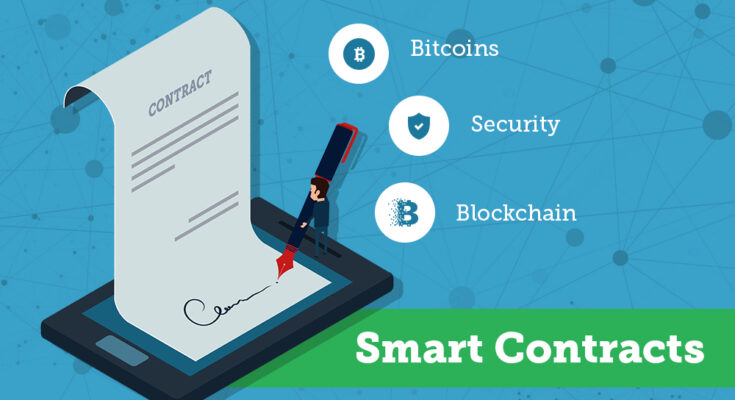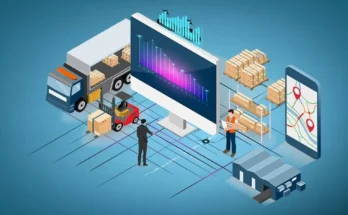In the rapidly evolving landscape of blockchain technology, smart contracts have emerged as a powerful tool for revolutionizing the way we interact and transact online. With the rise of Web3 development, smart contracts are playing a pivotal role in reshaping various industries and unlocking new possibilities. In this blog post, we will explore the fundamental concepts of smart contracts and discuss their role in the Web3 ecosystem.
What is a smart contract?
Smart contracts are contracts that execute themselves, with the agreement terms being directly written into code. It operates on a blockchain platform, which is a distributed ledger technology. Smart contracts enable secure, transparent, and tamper-resistant interactions between parties, providing a decentralized environment.
Unlike traditional contracts, smart contracts automatically execute predefined actions when specific conditions are met, eliminating the need for intermediaries and reducing the risk of fraud. Smart contracts can be applied across various industries and use cases, from financial services (e.g., automated payments and lending) to supply chain management, insurance, voting systems, and more. Their flexibility makes them adaptable to diverse business requirements.
How does smart contract work?
Here’s how a smart contract typically works:
Code Creation: A developer writes the smart contract code using a programming language that is compatible with the chosen blockchain platform. Popular platforms for creating smart contracts include Ethereum, Binance Smart Chain, and others.
Deployment: Once the code is written and tested, it is deployed to the blockchain. This process involves submitting the code to the network and creating a contract address, which serves as a unique identifier for the smart contract.
Validation: The blockchain network validates the incoming transactions and ensures that they adhere to the rules specified in the smart contract code. This validation process is performed by the consensus mechanism of the blockchain network (e.g., Proof-of-Work, Proof-of-Stake, etc.).
Execution: If the incoming transaction meets the conditions specified in the smart contract, the contract’s code is executed automatically. The outcome of the execution could be a change in the contract’s state, updating variables, or even creating new smart contracts.
Immutable Records: Once a smart contract is deployed on the blockchain, its code, and state are immutable, meaning they cannot be altered or deleted. This immutability ensures that the contract’s behavior remains predictable and transparent throughout its lifetime.
Advantages of smart contracts
Trust and Security
Smart contracts are built on the foundations of blockchain technology, which provides unparalleled security and transparency. Once a smart contract is deployed on the blockchain, it becomes virtually impossible to alter or tamper with the agreed-upon terms, ensuring trust among all parties involved.
Efficiency and Automation
By automating processes and removing intermediaries, smart contracts streamline operations, reduce costs, and improve efficiency. These self-executing contracts eliminate the need for manual intervention, leading to faster and more reliable transactions.
Decentralization
In many cases, traditional contracts necessitate the involvement of intermediaries such as lawyers, notaries, or escrow services to guarantee compliance and enforceability. With smart contracts, these intermediaries are eliminated, reducing costs, and making the process more efficient.
Smart contracts operate on decentralized blockchain networks, eliminating the reliance on a central authority. This decentralization ensures that no single party has complete control over the contract, making it more resistant to censorship and manipulation.
Programmability and Flexibility
Smart contracts are highly programmable, allowing developers to create complex logic and automate various business processes. With the ability to interact with other smart contracts and external systems, they offer endless possibilities for innovation and customization.
Speed and Accessibility
Traditional contracts may involve time-consuming manual processes, requiring days or weeks for completion. In contrast, smart contracts execute instantaneously once the conditions are met, providing immediate results. Additionally, smart contracts are accessible 24/7, allowing global participation without concerns about time zones or business hours.
Cost Savings
By removing intermediaries and automating processes, smart contracts significantly reduce transaction costs associated with contract execution. This makes them particularly attractive for businesses and organizations looking to optimize their operations and save on administrative expenses.
Global Reach
Smart contracts are accessible to anyone with an internet connection and can facilitate agreements between parties regardless of their geographical location. This global reach opens up new possibilities for international trade and cooperation.
Smart Contract Applications
Decentralized Finance (DeFi)
Smart contracts are at the core of DeFi applications, facilitating peer-to-peer lending, decentralized exchanges, stablecoins, yield farming, and more. These financial services operate autonomously, without the need for intermediaries such as banks or brokers.
Supply Chain Management
With smart contracts, supply chain management becomes more transparent and efficient. From tracking the origin of goods to automating payments and verifying authenticity, smart contracts enhance accountability and reduce fraud in global supply chains.
Identity Management
Smart contracts provide a secure and decentralized solution for managing digital identities. By eliminating the need for centralized databases, individuals can have more control over their data, ensuring privacy and reducing the risk of identity theft.
Gaming and Non-Fungible Tokens (NFTs)
Smart contracts enable the creation and trading of unique digital assets, known as NFTs. These assets represent ownership of digital art, virtual real estate, in-game items, and more. Smart contracts ensure provenance, authenticity, and secure transactions within the gaming and digital art industries.
AI Integration
The integration of artificial intelligence with smart contracts could create powerful applications. AI algorithms could analyze data to determine the most optimal conditions for executing smart contracts, leading to more efficient and intelligent automation.
Internet of Things (IoT) Integration
Combining smart contracts with IoT devices has the potential to create an ecosystem where devices can autonomously interact and transact with each other. For example, an electric vehicle could pay for its charging using a smart contract linked to its digital wallet, creating a frictionless machine-to-machine economy.
Future of smart contracts
Smart contracts were already a transformative innovation in the world of blockchain technology and decentralized applications. However, the future scope of smart contracts is expected to be even more groundbreaking, as advancements in technology and adoption continue to shape their potential impact.
Smart contracts have the potential to streamline legal agreements and governance processes. In the future, we may witness their widespread use in managing contracts, wills, property transfers, voting systems, and other areas requiring trusted execution and verifiability. The future of smart contracts is promising, with vast potential for innovation across multiple industries.
Also Read: Asia and the Middle East are Expected to Dominate the Global Blockchain Market
Conclusion
As Web3 development continues to evolve, smart contracts will play an increasingly vital role in transforming industries and empowering individuals. Smart contracts can handle complex private blockchain services involving multiple parties. They enable simultaneous execution across multiple contract instances, ensuring synchronized actions among different participants. With their inherent trust, security, and automation, smart contracts have the potential to reshape the digital landscape, fostering a new era of decentralized applications and services. By leveraging the power of smart contracts, we can unlock innovative solutions and create a more inclusive and transparent future.




